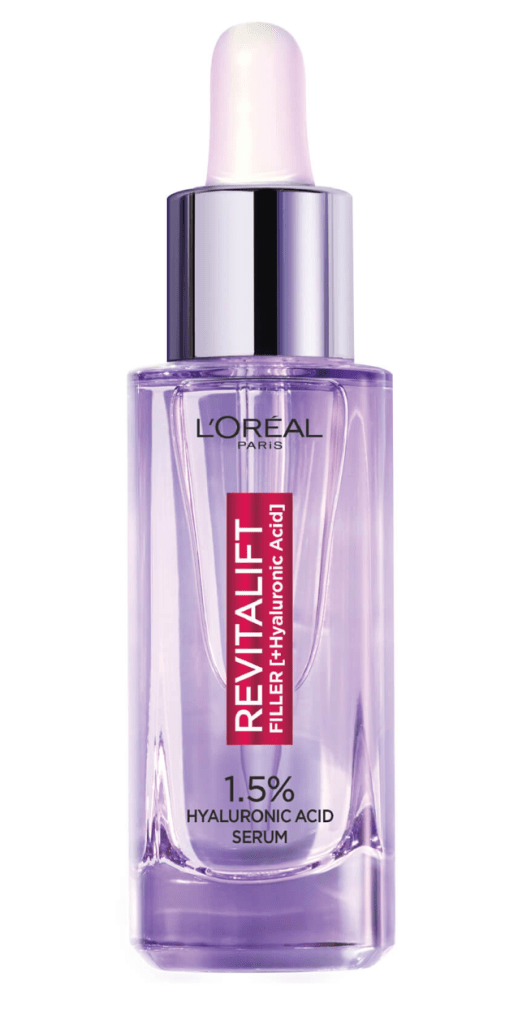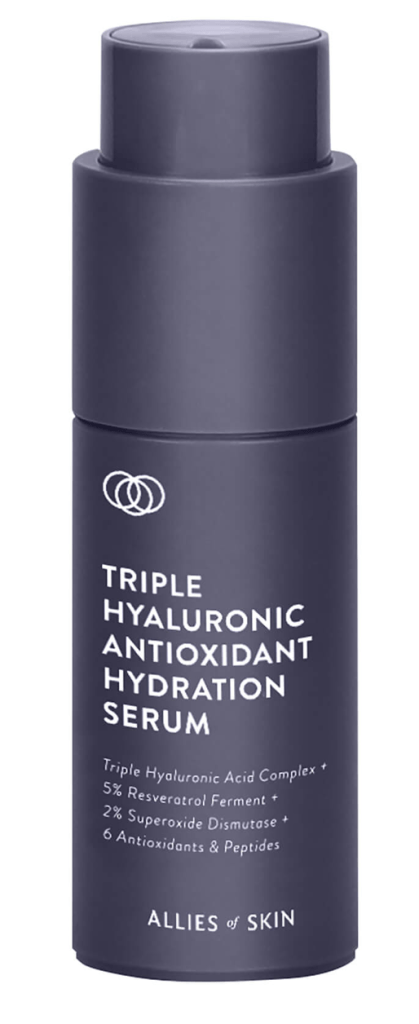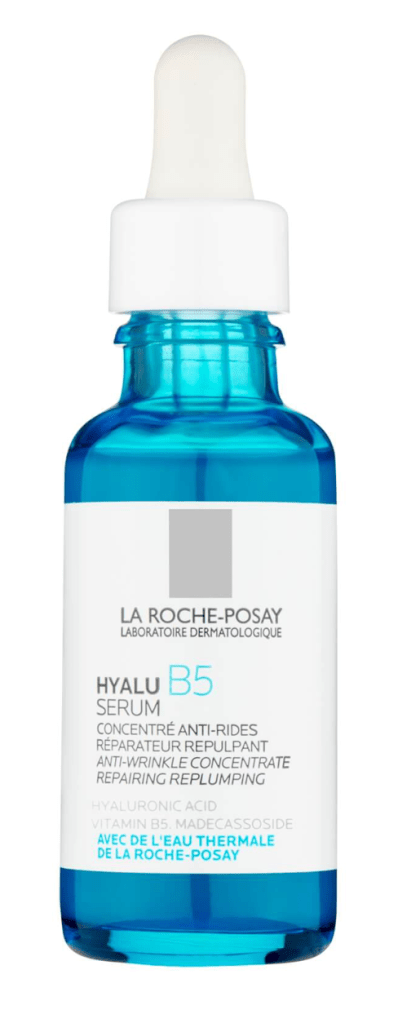What Is Hyaluronic Acid? The Essential Skincare Alphabet
A thread https://abs.twimg.com/emoji/v2/... draggable="false" alt="⬇️" title="Pfeil nach unten" aria-label="Emoji: Pfeil nach unten"> https://scienceandskincare.blog/2021/03/05/what-is-hyaluronic-acid-the-essential-skincare-alphabet/">https://scienceandskincare.blog/2021/03/0...
https://abs.twimg.com/emoji/v2/... draggable="false" alt="⬇️" title="Pfeil nach unten" aria-label="Emoji: Pfeil nach unten"> https://scienceandskincare.blog/2021/03/05/what-is-hyaluronic-acid-the-essential-skincare-alphabet/">https://scienceandskincare.blog/2021/03/0...
A thread
Hyaluronic Acid ( https://scienceandskincare.blog/?s=hyaluronic+acid)">https://scienceandskincare.blog/... is an incredibly beloved ingredient in the skincare world. It has been marketed for YEARS as a skincare saviour, that can transform dull skin into something from a glossy ad campaign.
But, is it true?
But, is it true?
I& #39;m going to start today& #39;s post off a little differently. Very aptly, a day before I wrote this, one of my favourite Instagram ( https://www.instagram.com/scienceandskincare/)">https://www.instagram.com/sciencean... dermatologist wrote this very informative post on HA:
https://www.instagram.com/p/CMAEZ1iseC3/ ">https://www.instagram.com/p/CMAEZ1i...
What I love about this post is that it isn& #39;t sensationalist. It doesn& #39;t promise that you will definitely look 20 years younger than you already do.
However, it doesn& #39;t discredit HA either. It shows, as I think more people should show, a realistic expectation of what skincare can do for you.
What type of ingredient is hyaluronic acid?
As stated in the above post, it is a glycosaminoglycan. In other terms this is a, repeating two-sugar unit that forms a polysaccharide.
As stated in the above post, it is a glycosaminoglycan. In other terms this is a, repeating two-sugar unit that forms a polysaccharide.
If that doesn& #39;t make sense to you, think of HA as a lubricant. It& #39;s a molecule that we naturally produce, to provide our bodies with hydration.
Benefits of hyaluronic acid
It& #39;s a pretty useful ingredient.
The magic line that every skincare blogger/marketer uses is;
& #39;one gram of hyaluronic acid can hold up to six LITERS of water& #39;, which in all fairness is a good point.
It& #39;s a pretty useful ingredient.
The magic line that every skincare blogger/marketer uses is;
& #39;one gram of hyaluronic acid can hold up to six LITERS of water& #39;, which in all fairness is a good point.
Other than hydration, it is thought to be a key ingredient in fighting ageing. This because, it can supposedly act as a stimulating agent for collagen synthesis ( #d=gs_cit&u=%2Fscholar%3Fq%3Dinfo%3AEny_c3ARh4kJ%3Ascholar.google.com%2F%26output%3Dcite%26scirp%3D1%26hl%3Den">https://scholar.google.com/scholar?hl=en&as_sdt=0%2C5&q=+hyaluronic+acid+in+skincare&btnG= #d=gs_cit&u=%2Fscholar%3Fq%3Dinfo%3AEny_c3ARh4kJ%3Ascholar.google.com%2F%26output%3Dcite%26scirp%3D1%26hl%3Den).">https://scholar.google.com/scholar...
What are the side effects of hyaluronic acid?
There aren& #39;t many to list. It& #39;s a pretty safe ingredient and we make it ourselves! When using hyaluronic acid, there isn& #39;t much to worry about.
There aren& #39;t many to list. It& #39;s a pretty safe ingredient and we make it ourselves! When using hyaluronic acid, there isn& #39;t much to worry about.
Is it OK to use hyaluronic acid every day?
You can use it everyday. You lose moisture from your skin everyday, there would be no harm in using it everyday.
It& #39;s not like other acids, it doesn& #39;t exfoliate the skin. It won& #39;t cause irritation.
You can use it everyday. You lose moisture from your skin everyday, there would be no harm in using it everyday.
It& #39;s not like other acids, it doesn& #39;t exfoliate the skin. It won& #39;t cause irritation.
Product recommendations
L& #39;Oréal Paris Revitalift Filler with 1.5% Hyaluronic Acid Anti-Wrinkle Dropper Serum 30 mL
- silicon-free
- sulfate-free
- paraben-free
- oil-free
- reef-safe
- fungal-acne safe
- sulfate-free
- paraben-free
- oil-free
- reef-safe
- fungal-acne safe
- alcohol-free
- silicon-free
- sulfate-free
- paraben-free
- reef-safe
- silicon-free
- sulfate-free
- paraben-free
- reef-safe
- sulfate-free
- paraben-free
- oil-free
- EU-allergen-free
- reef-safe
- fungal-acne safe
- paraben-free
- oil-free
- EU-allergen-free
- reef-safe
- fungal-acne safe
- alcohol-free
- silicon-free
- sulfate-free
- paraben-free
- oil-free
- EU-allergen-free
- reef-safe
- fungal-acne safe
- silicon-free
- sulfate-free
- paraben-free
- oil-free
- EU-allergen-free
- reef-safe
- fungal-acne safe
- silicon-free
- sulfate-free
- paraben-free
- reef-safe
- fungal-acne safe
- sulfate-free
- paraben-free
- reef-safe
- fungal-acne safe
References
Selyanin, M. A., Boykov, P. Y., Khabarov, V. N., & Polyak, F. (2015). Hyaluronic Acid. John Wiley & Sons, Ltd.
Selyanin, M. A., Boykov, P. Y., Khabarov, V. N., & Polyak, F. (2015). Hyaluronic Acid. John Wiley & Sons, Ltd.
Pictures courtesy of brands
This thread can be read here: https://scienceandskincare.blog/2021/03/05/what-is-hyaluronic-acid-the-essential-skincare-alphabet/">https://scienceandskincare.blog/2021/03/0...

 Read on Twitter
Read on Twitter






